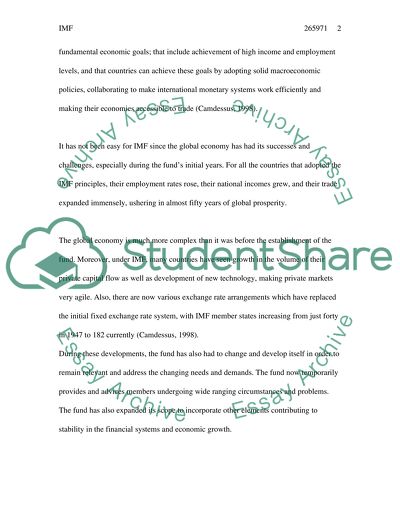Cite this document
(The Legitimacy of IMF Case Study Example | Topics and Well Written Essays - 1963 words, n.d.)
The Legitimacy of IMF Case Study Example | Topics and Well Written Essays - 1963 words. Retrieved from https://studentshare.org/finance-accounting/1525178-is-there-a-legitimacy-of-imf-duties-and-did-imf-fulfill-its-promises
The Legitimacy of IMF Case Study Example | Topics and Well Written Essays - 1963 words. Retrieved from https://studentshare.org/finance-accounting/1525178-is-there-a-legitimacy-of-imf-duties-and-did-imf-fulfill-its-promises
(The Legitimacy of IMF Case Study Example | Topics and Well Written Essays - 1963 Words)
The Legitimacy of IMF Case Study Example | Topics and Well Written Essays - 1963 Words. https://studentshare.org/finance-accounting/1525178-is-there-a-legitimacy-of-imf-duties-and-did-imf-fulfill-its-promises.
The Legitimacy of IMF Case Study Example | Topics and Well Written Essays - 1963 Words. https://studentshare.org/finance-accounting/1525178-is-there-a-legitimacy-of-imf-duties-and-did-imf-fulfill-its-promises.
“The Legitimacy of IMF Case Study Example | Topics and Well Written Essays - 1963 Words”, n.d. https://studentshare.org/finance-accounting/1525178-is-there-a-legitimacy-of-imf-duties-and-did-imf-fulfill-its-promises.


